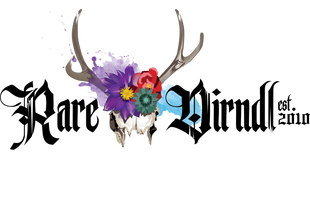My Dirndl Doesn't Fit! Now What? - How to Alter a Dirndl
It happens to the best of us—your favorite dirndl is calling your name, but it just doesn’t fit like it used to. Seasons change, and our bodies do too. Maybe it feels a little too snug around the bust or a bit loose at the waist. Whether it's from body changes (hello, seasons of life!) or just sizing surprises, don’t stress. You’ve got options!
You can either:
-
Return or replace the piece
-
Or—our favorite option—alter it!
The good news? Most dirndls (especially ours!) are designed to be altered... its usually a relatively easy fix. With a few simple adjustments, you can get that perfect, snug-but-not-tight fit that lets you dance, toast, and twirl without a care.
How Should a Dirndl Fit?
A dirndl should fit snugly but comfortably—think structured, not restrictive. You should be able to zip it up without major effort, and when it’s the right size, it will feel supportive without squeezing. While some folks prefer a bit of a looser fit, your dirndl should never move around easily at the bust or waist.

A good rule of thumb: if you bend over and can see down the front of your bodice, it’s too big in the bust. The bodice should gently hug your shape and stay in place, providing a comfortable fit that makes you feel secure and confident. You shouldn’t have to rely on the ribbon or chain lacing to tighten it—those are decorative, not meant to fix the fit. With a few simple tweaks, you can achieve that perfect fit that lets you dance, drink, and celebrate with ease.

✂️ Most Common Dirndl Alterations
And don’t worry—you don’t need a fashion degree to make the quick side seam alts happen! Just some sewing basics or a sewing machine at home (though we’ll show you some easy steps if you do). This guide will walk you through basic alterations and help you understand what’s possible.
In our experience, the most common adjustment when someone gains or loses weight is a simple side seam alteration. These seams usually have extra seam allowance built in, making it easier to let the dirndl bodice out or take it in slightly... and these are typically the only seams that need to be adjusted.
Other areas like the shoulder seams don’t typically need changing due to weight fluctuations, but it’s not impossible. Just know that shoulder seam adjustments are a bit trickier, so we usually recommend working with a professional tailor or seamstress for that one.

Alterations Are Totally Normal
Most traditional dirndls are constructed with extra fabric in the bodice, hemline, and side seams, making them easy for tailors (or confident DIYers) to adjust. That means it’s usually simple to:
-
Take in or let out the bust and waist
-
Shorten the skirt
-
Adjust the neckline or straps
It’s all about small tweaks that make a big difference in comfort and confidence.

Simple DIY Alteration Steps
If you’re handy with a sewing machine or just like to try things yourself, here are the basic steps to adjusting the fit of your dirndl:
Step 1: Open the Side Seams
Use a seam ripper or small, sharp scissors to carefully open the side seams. You’ll also want to open the seam that connects the skirt to the bodice in that area.

Step 2: Adjust the Fit
-
To make your dirndl smaller, sew the new seam closer to the center.
- To make it larger, sew closer to the edge of the existing seam allowance.
💡 Tip: If you're just adjusting the bust, start the seam higher and gradually blend it into the waistline. The extra fabric in most dirndl bodices makes this super doable.

Step 3: Re-Pleat the Skirt
Once you’ve adjusted the bodice, you’ll need to re-pleat the skirt so it fits the new waistline. Follow the existing pleat direction to keep things looking seamless (pun intended).
Step 4: Finish the Seams
-
Sew the seams closed with a ½-inch seam allowance.
-
Press them open with an iron for a clean, professional finish.
-
Hand-stitch the top of the seam allowance down to keep everything flat.
Tada! A firmer fit and a fresh look.

Not Into DIY? Totally OK
If sewing isn’t your thing, that’s no problem. Most dry cleaners or formalwear boutiques have seamstresses on staff who can make these basic alterations for you. Just bring in your full outfit (including blouse and apron) so they can see the whole look.
If you’d rather go that route, check out our post: How to Find a Local Seamstress You Can Trust
And don’t forget—Rare Dirndl offers an Alteration Reimbursement Program to help cover the cost! If you love your dirndl but need a small fit fix, we’ll help make that happen. Click here to learn more.
Every Body Is a Dirndl Body
Whether you’re shopping your first dirndl or pulling out your tried-and-true favorite, your body is worthy of a great fit. From petite to plus size, curves to straighter frames—our designs are made with you in mind.
Sometimes the best fit just needs a little nip, tuck, or pleat. And we’re here to make sure you feel amazing in your Rare Dirndl.
Got questions? Reach out to our team—we’re happy to talk through your options or help you decide what kind of alteration might be best.

Need More Dirndl Style Tips?
-
👉 Or browse our full collection of dirndl accessories to complete your look!






